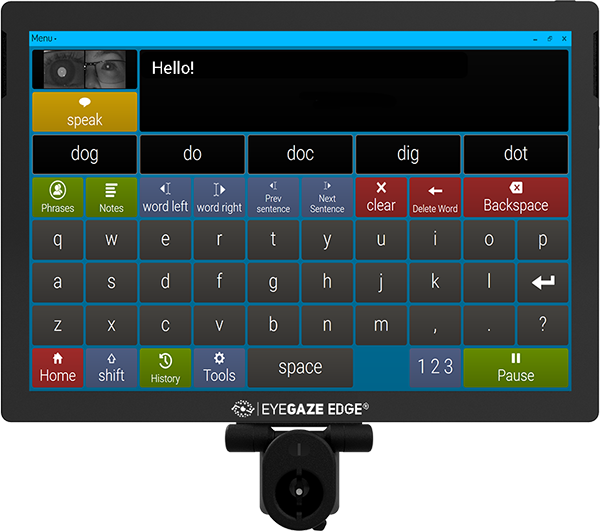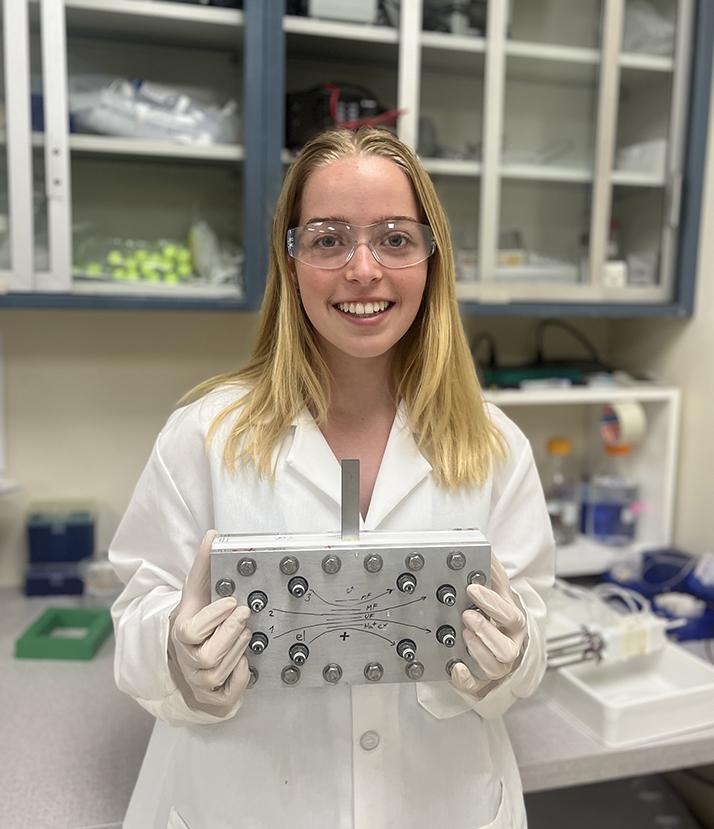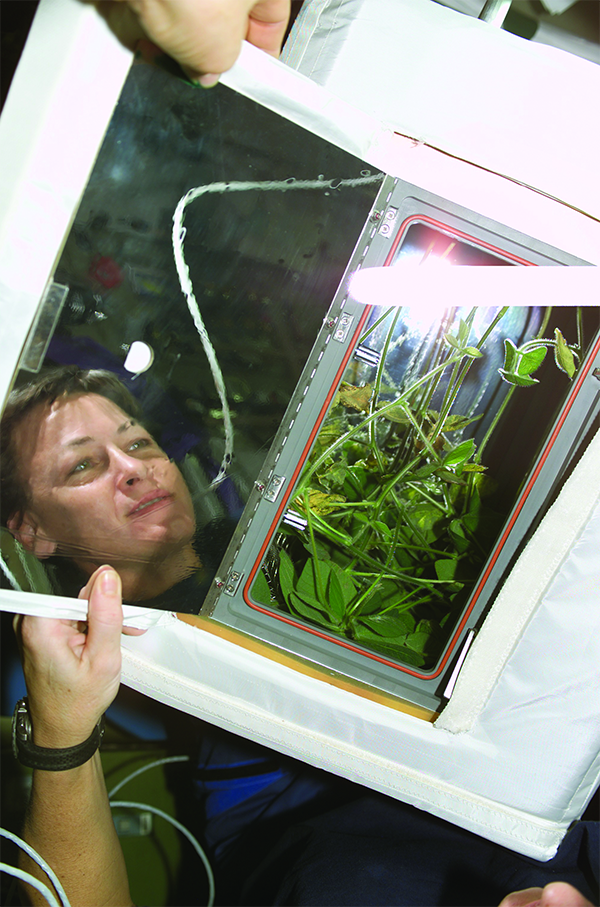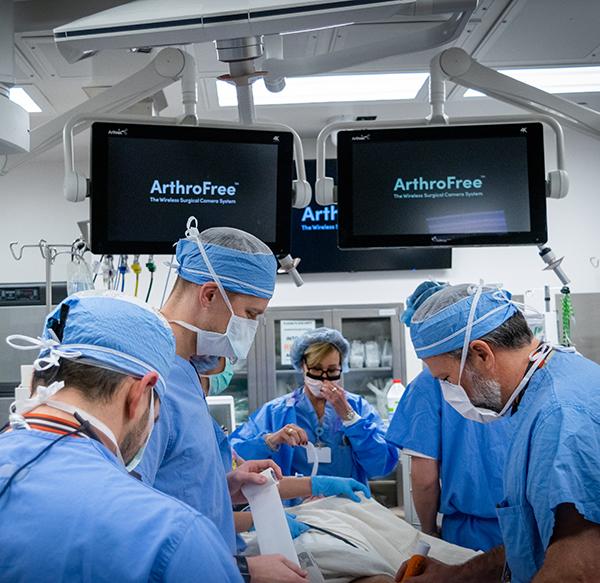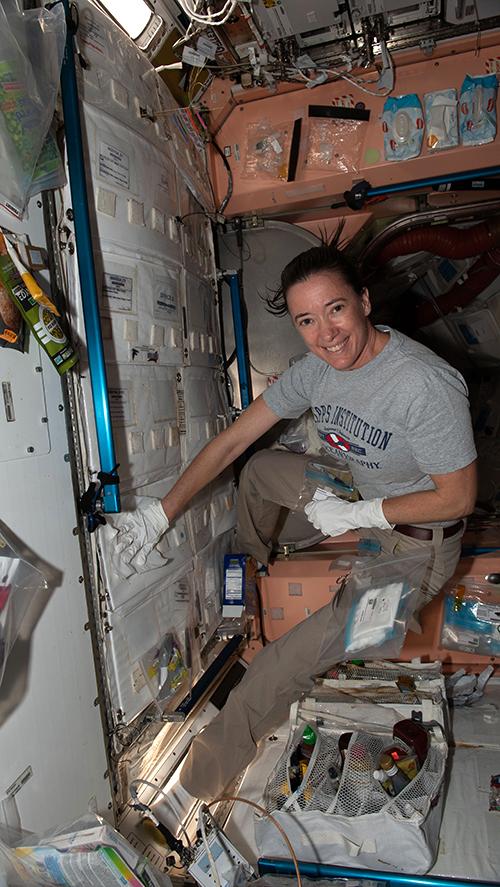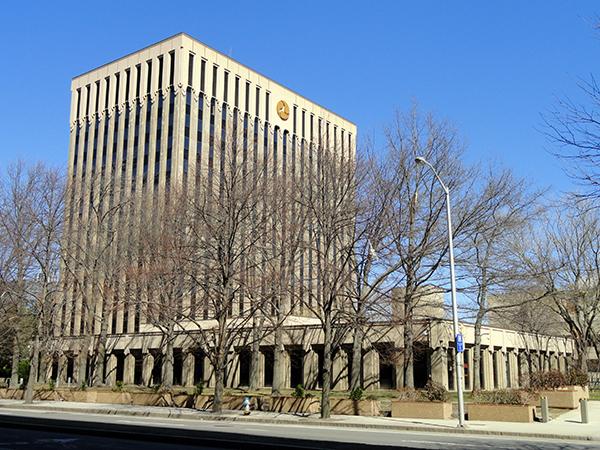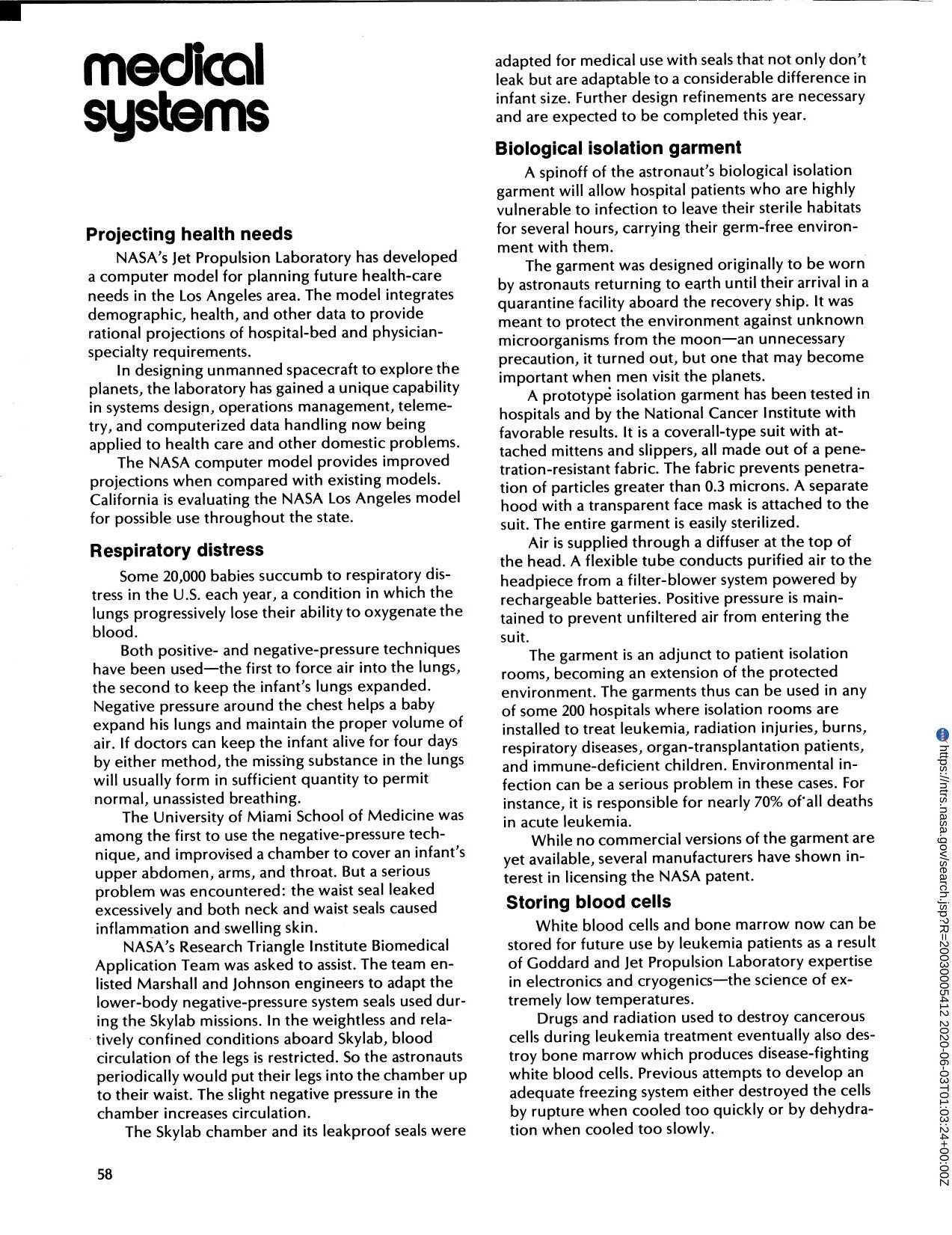
Respiratory Distress
The University of Miami School of Medicine asked the Research Triangle Institute for assistance in improvising the negative pressure technique to relieve respiratory distress in infants. Marshall Space Flight Center and Johnson Space Center engineers adapted this idea to the lower-body negative-pressure system seals used during the Skylab missions. Some 20,000 babies succumb to respiratory distress in the U.S. each year, a condition in which lungs progressively lose their ability to oxygenate blood. Both positive and negative pressure techniques have been used - the first to force air into lungs, the second to keep infant's lungs expanded. Negative pressure around chest helps the baby expand the lungs and maintain proper volume of air. If doctors can keep the infant alive for four days, the missing substance in the lungs will usually form in sufficient quantity to permit normal breathing. The Skylab chamber and its leakproof seals were adapted for medical use.
Full article: http://hdl.handle.net/hdl:2060/20030005412

Respiratory Distress

Respiratory Distress







